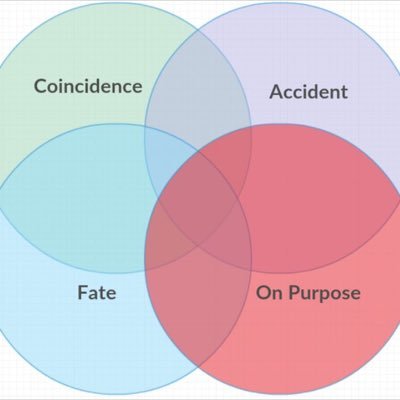Things to Think About is a (new) column that is quite self-explanatory.
In Western culture, there is a general set of nearly absolute societal norms: College, steady job, apartment or house, friends, relationships, money, asset accrual, moving up the employment ladder, marriage/children, legacy, etc.
It almost never seems to occur to people to think about whether they truly want any of these norms. And if the thoughts do occur, there’s an apparent instinctiveness to immediately suppress the unpleasantness. There’s an instinctive desire and more significantly an overwhelming social pressure to push those thoughts aside and simply “move forward.”
There’s certainly inherent value in these norms. They represent varying degrees of social validity and social status. Having these norms makes you stack up well against your peers, and makes you more marketable in both employment and relationships. But from a solely internal perspective, what is the value of all of this “stuff”? To what extent are these normal values really necessary? What does a high paying job mean to you? What does a future family mean to you? What does being envied mean to you?
There will probably come a point someday where robots and pre-programmed machines are responsible for much of the labor force. Imagine that in this scenario, earning money was no longer an issue. In this hypothetical scenario, gaining wealth would no longer be a meaningful factor in influencing decisions, and people would simply just “do whatever they want.” If you were able to do whatever you wanted, what would you do? How would you get your fulfillment? How would you find purpose?
I’m not suggesting that jobs and relationships don’t matter. What I’m suggesting is that it’s important to think about why they matter. And to think about the costs and sacrifices required to achieve certain socially constructed benchmarks. And even further, it’s important to think about how’d you behave without the shackles that force you into certain directions in life. How would you behave if you could start on a new path?
It’s a stretch to say that people should act as though money and social status weren’t part of the equation. It’s an even bigger stretch to say that people should live without considering consequences. Consequences matter, and there’s a certain degree of planning and saving that is necessary to ensure stability. The comfort of a home and the certainty of having food to eat are incredible luxuries to have. We need some degree of this stability to keep our minds at ease. But beyond that degree? What is it that we’re actually planning for? And why do we care? Surely it’s about having the ability to be happy later, but what if we could just be happy now?
“I wish I could just be more in the moment,” says everyone. But why not just be in the moment now? What is it exactly that we’re waiting for?
“If I could just get to this goal or overcome this thing or get past this struggle then I would finally relax. That would be enough.”
I’ve gone through this sort of thought process before and I’m sure you have too. Seeing it on paper now, it looks pretty ridiculous and irrational. It’s a cycle of thinking that goes on indefinitely.
It’s incredible how many people seem to actively lack purpose and fulfillment. They succeed at corporate jobs that feign meaning, put themselves in relationships that are merely “good enough”, and convince themselves that they’ll do better for themselves down the road. They convince themselves that the end always justifies the means. But those means really need to be evaluated. How much are you sacrificing to get to your end?
Really think about this: What is the point of sacrificing now for my future self? Who is this future self? Fuck that guy. He probably won’t even like the same foods as me. I already know that my present self likes completely different foods than most of my past selves. One of my past selves used to eat pasta with ketchup. Who does that? Future self will be a different person too. So why do I owe anything to this still-yet-to-exist lunatic?
I’ll acknowledge that delaying gratification can be pleasurable on it’s own merit. Some people enjoy saving. But it seems unreasonable that this alone would ensure that the present sacrifices are worth making.
If you delay gratification for long enough, the gratification may never come.
Just something to think about.

